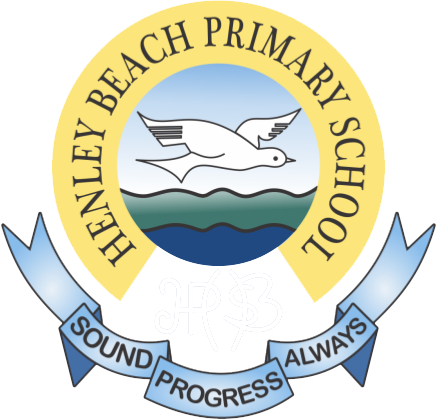Curriculum

Henley Beach Primary School strives to provide educational programs that are relevant, rigorous, developmental and sequential, according to the Australian Curriculum. The Australian Curriculum describes what young Australians should learn as they progress through schooling. It is the foundation for their future learning, growth and active participation in the Australian community. It sets out essential knowledge, understanding, skills and capabilities and provides a national standard for student achievement in core learning areas.
Further information regarding the Australian Curriculum, including each subject area, can be found at www.australiancurriculum.edu.au.
Learning environments promote excellence and personalised learning. Students are supported to develop effective learning dispositions that enable them to be lifelong learners, including a focus on being resilient and capable problem solvers.
The Arts:
The Arts includes five areas. These are Dance, Drama, Media Arts, Music and Visual Arts.
English:
The study of English is central to the learning and development of all young Australians. It is through the study of English that individuals learn to analyse, understand, communicate with and build relationships with others and with the world around them.
English is organised in three interrelated strands and together the three strands focus on developing students’ knowledge, understanding and skills in listening, reading, viewing, speaking and writing. The strands are:
Language: involves the development of a coherent, dynamic and evolving body of knowledge about the English language and how it works.
Literature: students learn to interpret, appreciate, evaluate and create literary texts such as narrative, poetry, prose, plays, film and multimodal texts, in spoken, print and digital/online contexts.
Literacy: students apply their English skills and knowledge to read, view, speak, listen to, write and create a growing repertoire of texts.
Health & Physical Education:
Health and Physical Education offers experiential learning, with a curriculum that is relevant, engaging, contemporary, physically active, enjoyable and developmentally appropriate. Integral to Health and Physical Education is the acquisition of movement skills, concepts and strategies that enable students to confidently and competently participate in a range of physical activities. In Health and Physical Education students develop the knowledge, understanding and skills to support them to be resilient, to develop a strong sense of self, to build and maintain satisfying relationships, to make health-enhancing decisions in relation to their health and physical activity participation, and to develop health literacy competencies in order to enhance their own and others’ health and wellbeing.
Humanities & Social Science:
Civics & Citizenship (Year 3 and above): The Civics and Citizenship curriculum is all about ensuring students have the skills and values to become active and informed citizens. Students will investigate political and legal systems, and explore the nature of citizenship, diversity and identity in contemporary society. The Civics and Citizenship curriculum is designed to foster students’ commitment to national values of democracy, equity and justice. This curriculum will develop students’ appreciation of Australia’s diversity and, overall, “what it means to be a citizen”. It explores ways in which students participate in Australia’s civic life and make a positive contribution as local and global citizens.
Economics & Business (Year 5 and above): The economics and business curriculum explores aspects of economics and business that affect daily life. Students will learn about the role that individuals, businesses and governments play in the economy, the way they make decisions about how to allocate resources and the effects of these decisions. Through studying economics and business, students will develop consumer and financial literacy skills, enterprising capabilities, and the ability to make responsible and informed decisions. These skills will allow students to face challenges of the 21st century, to maximize their opportunities for productive and rewarding futures and to make a contribution to the economy. The curriculum will enable students to engage with the economy as business and financially literate citizens locally, nationally, regionally and globally, both now and in the future.
Geography: provides opportunities for students to investigate, analyse and explain the characteristics of the places that make up our world.
History: provides opportunities to investigate Australian and world history. Australian history is to be taught within a world history context. Students develop knowledge, understanding and skills through their study of societies, events, movements and developments. There are opportunities to study the role of individuals and groups and their significance.
Languages:
The Australian Curriculum: Languages is designed to enable all students to engage in learning a language in addition to English. The Languages recognises that language learning is for all students in Australian schools, with individual students bringing their own linguistic and cultural background to their learning, whether this is English or the target language or various combinations of languages.
Mathematics:
Mathematics provides students with essential mathematical skills and knowledge in Number and Algebra, Measurement and Geometry, and Statistics and Probability. It develops the numeracy capabilities that all students need in their personal, work and civic life, and provides the fundamentals on which mathematical specialties and professional applications of mathematics are built.
Science:
Science provides opportunities for students to develop an understanding of important science concepts and processes, the practices used to develop scientific knowledge, of science’s contribution to our culture and society, and its applications in our lives. It provides an understanding of scientific inquiry methods, a foundation of knowledge across the disciplines of science, and develops an ability to communicate scientific understanding and use evidence to solve problems and make evidence-based decisions. The curriculum supports students to develop the scientific knowledge, understandings and skills to make informed decisions about local, national and global issues and to participate, if they so wish, in science-related careers.
Technologies:
Technologies draws together the distinct but related subjects of Design and Technologies and Digital Technologies. It will ensure that all students benefit from learning about and working with traditional, contemporary and emerging technologies that shape the world in which we live. In creating solutions, as well as responding to the designed world, students will contribute to sustainable patterns of living for themselves and others.
